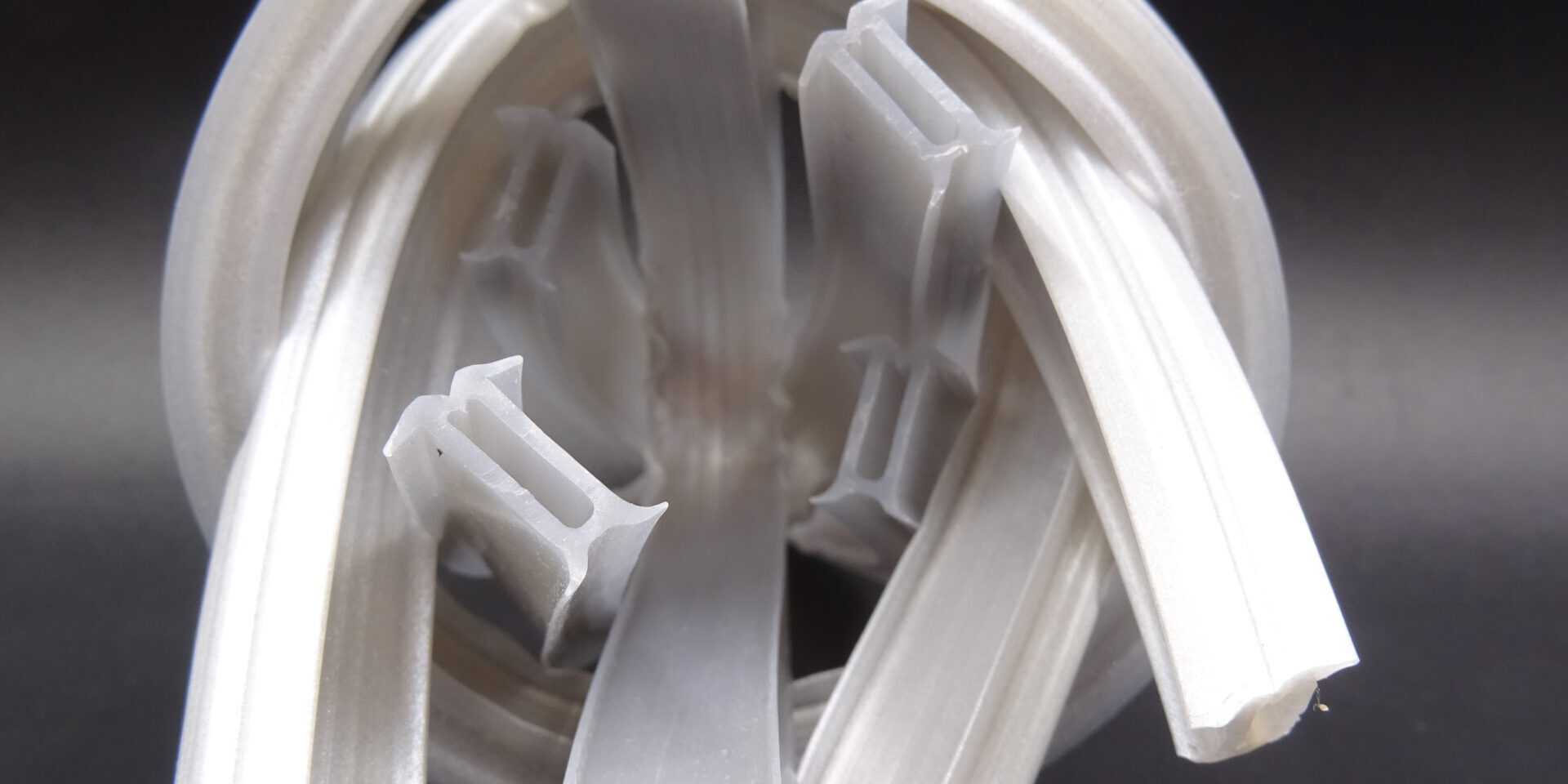Choosing the right material for sealing profiles is crucial for the efficiency and durability of the final product. In the industry, two of the most popular materials are often compared: silicone and EPDM (ethylene propylene diene monomer). Both elastomers offer a range of advantages, but in many key aspects, silicone clearly stands out. Here’s a detailed comparison of these two materials to help you make an informed decision.
1. Temperature Resistance
Silicone:
Silicone profiles are characterized by exceptional resistance to extreme temperatures. Silicone performs well in both very low and high temperatures, withstanding a range from -60°C to +300°C (or even more in certain formulations). This resistance makes silicone profiles ideal for applications where temperatures may fluctuate significantly or be extreme.
EPDM:
EPDM has good resistance to weather conditions and UV radiation, but its operating temperature range is around -40°C to +120°C. In applications requiring higher heat or cold resistance, EPDM simply cannot match silicone.
Conclusion: Silicone is the better choice when temperature resistance is a priority.
2. Chemical Resistance
Silicone:
SSilicone offers excellent resistance to a wide range of chemicals, including oils, fats, acids, and bases. This makes silicone profiles a popular choice for industrial, medical, and pharmaceutical applications where materials need to withstand chemical exposure.
EPDM:
EPDM is resistant to water, steam, ozone, and many solvents, but its resistance to oils and fuels is significantly lower than that of silicone. This means EPDM is not the best option in environments exposed to oils or harsh chemicals.
Conclusion: Silicone wins in terms of chemical resistance, making it more versatile in challenging industrial conditions.
3. Flexibility and Durability
Silicone:
Silicone profiles are known for their exceptional flexibility, which is maintained even at extreme temperatures. Silicone does not lose its elasticity, ensuring long product life. Even after prolonged exposure to changing weather conditions, silicone remains stable and does not age quickly.
EPDM:
EPDM also offers good flexibility, especially in normal weather conditions, but in extreme temperatures, its properties may degrade. Over time, EPDM can lose its elasticity, particularly in high temperatures or under intense sunlight.
Conclusion: Silicone is more flexible and durable, especially in demanding environmental conditions.
4. Hygiene and Compliance with Standards
Silicone:
Silicone is biocompatible and can be used in direct contact with food as well as in the medical field. Silicone profiles meet stringent FDA and BfR standards, making them the ideal choice for applications where hygiene is critical, such as in the food, pharmaceutical, or medical industries.
EPDM:
While EPDM is widely used in industry, it is not as commonly recognized for hygienic applications. Its use in the food or pharmaceutical industries is much more limited.
Conclusion: When hygiene and compliance with health standards are essential, silicone far outperforms EPDM.
5. Weather Resistance
Silicone:
Silicone profiles offer outstanding resistance to UV radiation, ozone, rain, and wind. Silicone does not degrade when exposed to long-term weather conditions, making it an excellent choice for outdoor applications.
EPDM:
EPDM is known for its good weather resistance, particularly against ozone and UV radiation. However, its durability in long-term exposure to intense sunlight or fluctuating weather conditions is lower compared to silicone.
Conclusion: Silicone offers better long-term resistance to weather, making it the more reliable choice for outdoor applications.
Conclusion: Why Choose Silicone?
Compared to EPDM, silicone profiles excel in many key areas, including temperature resistance, chemical resistance, durability, and flexibility. Silicone is more versatile, durable, and reliable in extreme conditions, and it also meets stringent hygiene standards. If you need a high-quality, long-lasting solution that can withstand even the toughest conditions, silicone profiles are definitely the best choice.



